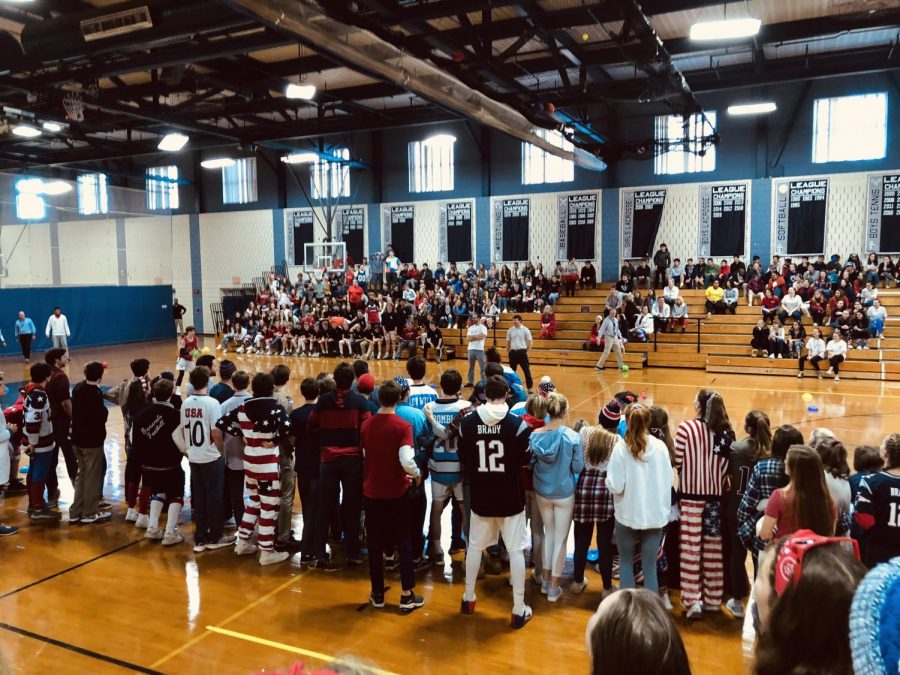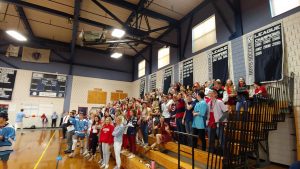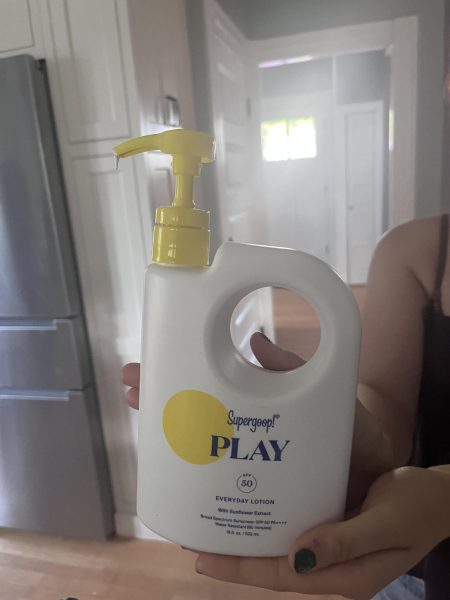Enthusiasm or Extremism: Has Spirit Week Gone Too Far?
Senior line the court during a tense dodgeball game against the Juniors.
When asking what part of the school year is your favorite, most students would quickly answer spirit week. The five days kick off the holiday season with friendly competitions, fun dress days, and popular after-school activities. When walking through the hallways during spirit week, one sees the explosive and vibrant color of each class plastered on their hallways in the form of streamers, solo cups, lights, and more. The unity and togetherness of each class is represented through the intense effort everyone puts into hallway decorating and dressing up. However, most students would agree that this year something felt different.
On Wednesday, November 20th, hallway decorating was off to a good start. All the classes rallied together to express their school spirit with the hopes of winning that first competition of the week. This smooth start did not last long, as before the judging began, multiple students were caught destroying other classes’ hallways. Specifically, a few senior boys. Things got even worse when inappropriate photos were posted on the senior’s bulletin board, resulting in judges deducting points and considering disqualification.
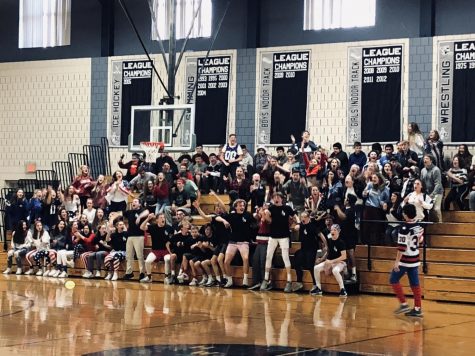
The sophomores cheer as junior president Grant Landon introduces their grade during the assembly on Class Color Day.
The faculty and staff were less than impressed with the attitudes of the student body as a whole during spirit week. Mr. Jeff Walsh, a former graduate from HW, stated that year spirit week was “taken too seriously,” and over the years spirit week has “become more divided from class to class.” When asked to recount his own experience in high school, Walsh recalled that the week used to be much more focused on beating Ipswich in the Thanksgiving football game, not so much on which HW class was going to win.
His observations seem to be accurate. Today, students seem to be less concerned with the game and instead focus on beating their peers, eagerly anticipating each point update. In the past, When scores were close, the infamous final “cheer-off” traditionally gave 1st place to the seniors who often were the loudest. However, many viewed this as a way to rig the system and award the graduating class the win as a rite of passage. The class of 2020 has rolled their eyes at this system since their freshman year, always coming in second place (freshmen, sophomore, and junior year). This fall many looked forward to the uproar erupting from the senior class when they finally won. Yet, the last pep rally was different — the cheer-off never took place; instead, results were simply revealed. The freshmen took 4th, the sophomores 3rd, the seniors finished 2nd, and the juniors won. As the juniors were announced the winners, all of the seniors instantly stood up and left the gym, with the sophomores following closely behind.
The following Wednesday, the senior class government boycotted the system by choosing not to attend the student government morning meeting. When asked why the boycott was necessary, class treasurer Chris Tsouvalas said, “We disagree with the unorthodoxy of the administration’s practice of the 2019 Spirit Week and exercised our right to protest to bring about change.”
The seniors felt their points were being unfairly docked based on the actions of only a few seniors. They pointed out events of past years; this was not the first time classes acted out against each other; many cited past seniors tearing down the class of 2020’s hallway when they were freshmen.
The choice to boycott was frowned upon by administration and to others, it seemed less of a peaceful protest and more of an act of sore losers. Walsh fears that the overall goal has been lost, “If they don’t win, [students say it] ruins the first three days of their Thanksgiving break.” The fact that the results affect students’ moods days after, defeats the very purpose of Spirit Week: to have fun.
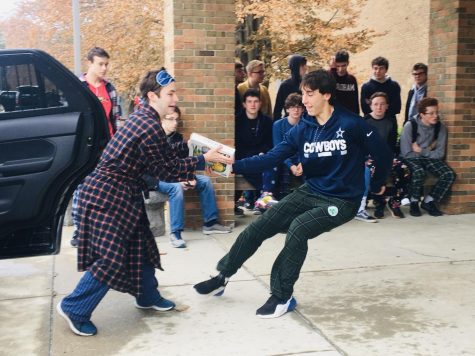
The juniors participate in the “Stuff the Cruiser” event to donate toys to children in need.
However, there were a few silver linings in this year’s spirit week. The juniors and seniors were neck-in-neck the whole week, which helped increase the number of toys for the “Stuff the Cruiser” event. Additionally, as the divide between the two classes intensified, relationships between other grades strengthened. The sophomores started to team up with the seniors, both sides encouraging each other during a myriad of events.
Student body president Tom Kain believes spirit week is intended to “[promote] some healthy competition among the classes.” The keyword here is healthy. However, the intense competition between the juniors and seniors created tension among all students and faculty. The fact that many seniors left for Thanksgiving break crying or screaming suggests a change has to be made.
Proposals include setting standards for hallway decorating, having faculty responsible for tallies during lunchtime activities, and shortening spirit week to just three days. Another option is to shift the focus back to our rivals, Ipswitch, and perhaps challenge them in some way. There is no question that Hamilton-Wenham students have spirit, the question is what is the best way to express it?

Kate Riccio is a senior at Hamilton-Wenham. She enrolled in journalism because she is interested in pursuing it in the future. She likes playing lacrosse,...

Jordan Reader is a senior at Hamilton-Wenham. She decided to sign up for journalism because she enjoys writing and thought it would be fun. She is new...

Audrey Fusco is a Junior at Hamilton-Wenham Regional High School. This is her second year writing for the General Consensus. Outside of journalism, she...


